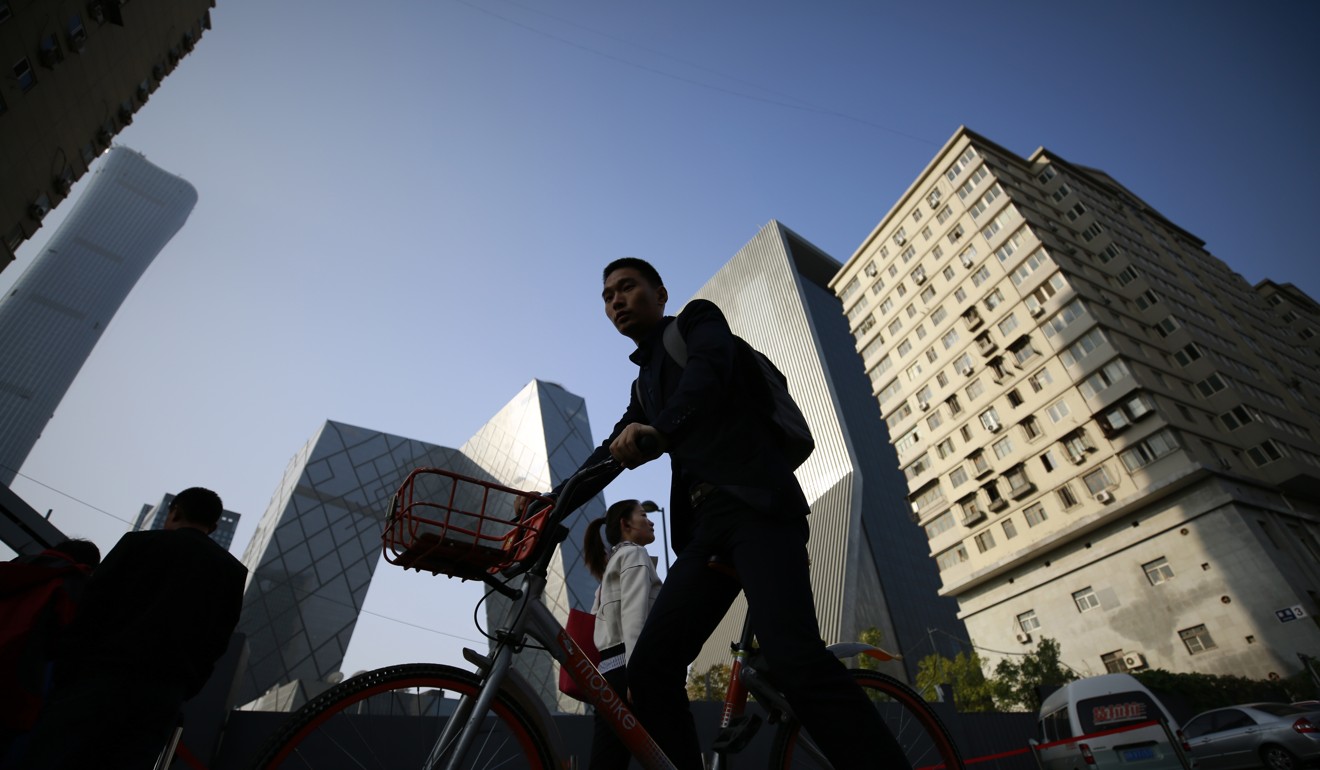
Fitch Ratings tests Beijing promise to open up financial markets with new wholly owned China operation
- US credit ratings agency steals a march on its global ratings peers
- Wholly owned China Bohua subsidiary to open this week

Global credit ratings agency Fitch is testing Beijing’s promise that it will open its financial market to foreign institutions and looking to steal a march on its main global competitors in tapping the vast potential of China’s domestic market.
Fitch is taking the bold step of opening its wholly owned China venture ahead of receiving a government licence to do business, as it is convinced that Beijing is sincere in its pledge to open up the credit ratings sector and is eager to tap into the world’s third largest bond market.
Fitch Bohua, the onshore entity scheduled to be officially launched on Wednesday in Beijing, is expected to give the New York-based agency a head start over international rivals S&P Global and Moody’s.

“We are optimistic about the development of China’s bond and rating service market,” said Danny Chen, chief executive officer of Fitch Bohua. “Its bond market is expected to continue expanding in coming years and could become the world’s second largest, or even outpace the United States to become the largest, in the foreseeable future.”
“The opening up of China’s market is moving forward at the prescribed pace,” he told the South China Morning Post in an interview on November 1.
“Despite some uncertainty ahead, the outlook remains good.”
Chen, a former chief ratings officer at Fitch’s joint venture with China Lianhe, was appointed to head the China operation two weeks ago. Fitch sold its stake in the joint venture earlier this year so that it could go it alone in tapping the potential of the country’s US$11 trillion bond market.
To meet regulatory requirements and enhance its research capacity, the onshore entity plans to double its team of nine analysts and add more staff in accounting, compliance and business development by the end of this year, to bring its total number of employees to 25.
Beijing announced it would widen market access for foreign ratings companies shortly after President Xi Jinping met US President Donald Trump in Florida in April 2017.
In response, the National Development and Reform Commission, China’s top economic planner, removed the credit rating industry from its list of sectors in which foreign investment was restricted.
In addition, the National Association of Financial Market Institutional Investors (NAFMII), an affiliate of the People’s Bank of China which oversees the interbank bond market, began accepting foreign registration applications from March this year.
Fitch Bohua applied for a ratings licence and is “keeping in close contact” with regulators on their review of, and feedback, on the process, Chen said.
In a statement accompanying its application, Fitch Bohua indicated it would concentrate on two business areas in the initial phase of its operations: ratings of financial institutions and structured financial products.

Among structured financial products, asset-backed securities are particularly “promising” and will be an area of focus for Fitch, Chen said.
“Structured finance has been encouraged by the Chinese government to promote innovation in financing. We hope to make full use of our expertise to help China in production innovation in this new asset class,” he said.
The total amount of outstanding asset-backed securities issued in China surpassed the 1 trillion yuan (US$14.5 billion) mark last year, with the type of assets being securitised expanding from non-performing loans to include mortgages and consumer loans.
“We are also evaluating business opportunities in other sectors. But that will be phase two,” Chen said.
The People’s Bank of China (PBOC) has not revealed where it stands in reviewing the new ratings applications.
S&P Global also announced in May that it would set up a wholly owned ratings subsidiary. However, Greater China president Simon Jin said in October that it was “still too early to talk about the details” of its China operations.
Moody’s has remained silent on its China strategy, and has not made clear how it plans to deal with its minority stake in its existing Chinese ratings joint venture with China Chengxin.
Currently, the onshore ratings market is dominated by China Chengxin, Lianhe, Dagong and a few other players. But their independence from the companies they rate has been questioned by the market.
For example, the vast majority of corporate bond issuers in the domestic market have high ratings from the agencies, even though some issuers later defaulted on their payments.
For instance, NAFMII data indicated 97 per cent of the 1,744 Chinese bond issuers were rated in the first half of this year AA or above.
In August, the PBOC suspended the Dagong agency from domestic ratings for one year after it was found by regulators to have “directly provided consulting services to rated companies” and “charged high fees” that compromised its independence.
Chen urged Beijing to accelerate the pace of development of its high-yield bond market, which would help differentiate the credit risks of different issuers and represent another growth opportunity for ratings agencies and market makers.
The participation of global rating agencies in the domestic market would make it more transparent and international, Chen said.
Despite no specific operational targets, which will largely depend on the regulatory environment and market conditions, Chen expressed confidence that Fitch would achieve strong growth in the vast China market.
“Fitch has been operating in China for 21 years and has accumulated a lot of experience. We know what the China market needs,” he said.